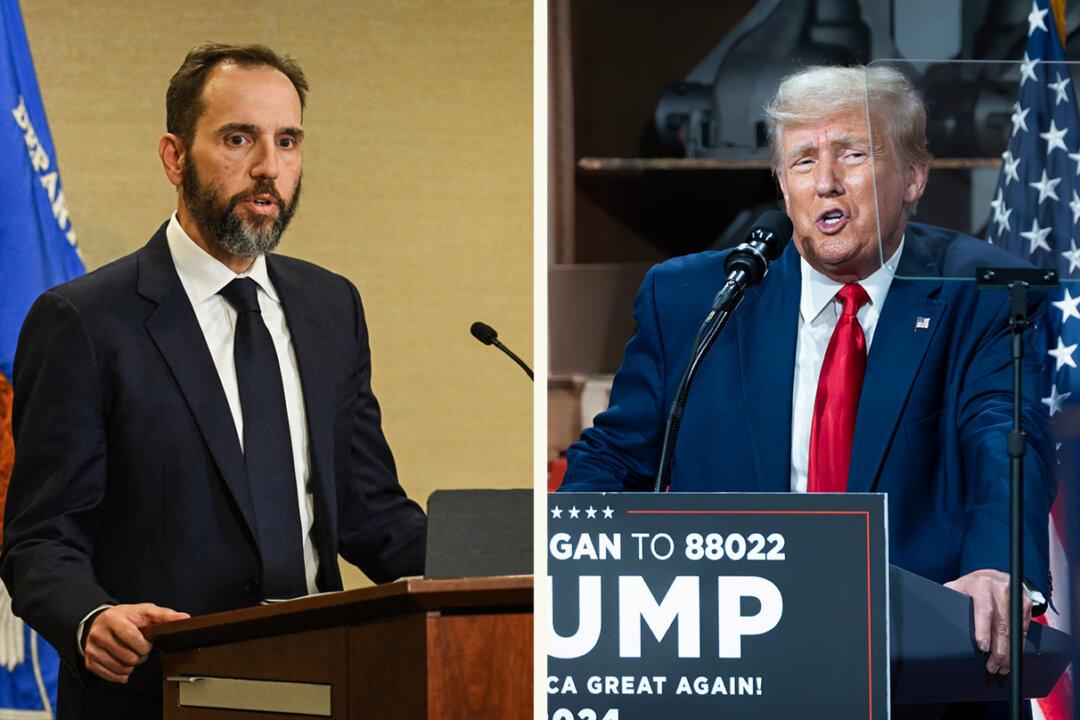Special counsel Jack Smith isn’t an “officer of the United States” and the Trump classified documents case should be dismissed, said a constitutional law professor who filed an amicus brief in the Trump classified documents case.
Josh Blackman, a law professor at the South Texas College of Law Houston, wrote that “at most, Smith’s temporary position is properly characterized as a mere ‘employee’” and that Mr. Smith’s prosecution “violates the Supreme Court’s Appointments Clause jurisprudence.”





